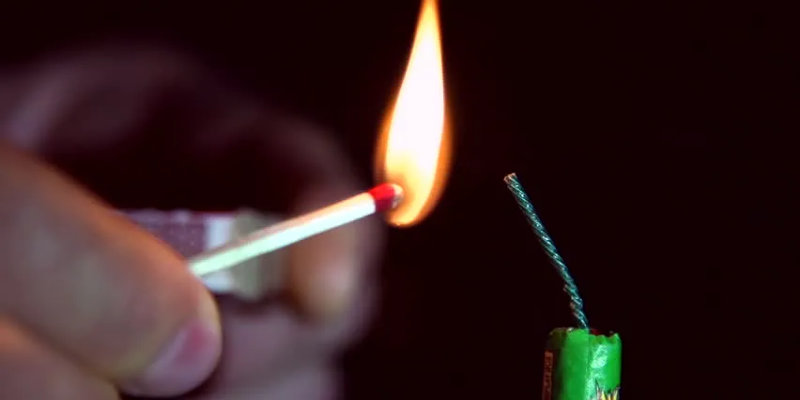Your Challenge: Survive 4 Month Blackout Without The Power Grid

Your mission, should you choose to accept it (an old ‘Mission Impossible’ TV-show reference), is to survive a 4 month blackout without the electric power grid. Without a functioning infrastructure (which relies on the grid). No grocery stores, pharmacies, gas stations, banks, Walmart, etc.. Are you very serious about prepping and preparedness?
The thing is, although I’m not suggesting that you literally do this, the aforementioned challenge may actually be forced upon you one day. I’ve written about long-term grid-down many times. In fact I’ve discussed preparedness for varying time periods ranging from just a few weeks, a few months, to a year or more. The other day I listened to a particular podcast which inspired me to hit on this topic once again. This time, a 4 month period, due to his apparent current-event ‘intel’ via special-operations contacts who are suggesting an upcoming period of extreme challenge – perhaps for 3 or 4 months. Regardless of said intel (h/t Mike Adams), I felt it a good excuse to address the hypothetical.
You never know… Personally, I’m very concerned about the present day time period. The many susceptible systemic risks and geo-political conflict. It’s not beyond the realm of possibilities that a series of cascading events (or a sudden event) could lead to a prolonged period of extreme challenge. So if you too are concerned about such things, keep reading…
First of all, the least of your worries will be food. It is ridiculously easy to acquire 4 months worth of food. Yes, it costs money. However with today’s high inflation, it makes sense to purchase sooner rather than later, given the ongoing devaluation of one’s dollar. I suspect that most here on this blog have easily stored this much food, and likely much more.
The Biggest Challenges You Will Face While Surviving 4 Months
In my opinion, some of the biggest challenges to your 4 month survival period will be as follows. Other people. A water supply. A source of energy. I will also add home heating during grid-down (if it’s during the winter with very cold temperatures). I’ve covered each of these individual topics here on the blog over the years. However, I’m presenting this hypothetical 4 month period because I believe it could help you overcome, or prepare for, these obstacles.
The Unprepared – Other People
The problem won’t be the pre-acquisition of food. Presumably you’ve done this beforehand. Rather, one HUGE challenge will most certainly be the non-prepared and desperate people, who will want your food. There would be a tremendous human catastrophe going on. I mean, potentially really horrific. Unprepared people will not survive 4 months under these circumstances, let alone 4 weeks…
Your world will instantly become very local. It will be you and your neighbors. At least at first. You will be forced to make decisions, some of which may be exceedingly difficult. Perhaps you help some to the extent that you can (and trust). These will be personal decisions and choices that will be unique to each of us. No one here on the blog can recommend one way or the other to anyone else, because this boils down to one’s beliefs, actions vs consequences, and ultimately of course – one’s survival. I’ll leave it at that…
Security. Wow, this will be a huge thing. Lots to do about where you live too. City and Urban dwellers? Not good. Cities, especially Blue cities, will disintegrate first. Each and every one of the unprepared will be just as hungry, regardless of where they live. However, higher population density translates to more hungry desperate people in a smaller geo. That spells much more trouble… I believe those of us who already live rural will not be affected anywhere close to that of suburbia. Each of our locations are unique. It’s up to you to gauge the extent of your security situation and subsequent operations.
A Water Source
The municipal water pressure will drop to zero. Previously on the blog, I’ve written about average water consumption. According to my analysis, on average, each person may go through about 66 gallons of water each day! Now granted, during a time of grid-down survival, you won’t be using that much water. But even if it was only 10 gallons, the amount of water (and storage thereof) will become a very big issue.
Already got a well? And an alternative energy source to power your well pump? No problem…
However if you don’t, well, you’re going to need a nearby water source. And the ability and equipment to haul /transport and store that water back at home. Unless you live right on a river, stream, or lake, this is going to be a daunting challenge. It absolutely must be addressed, or you will not make it. Period. So do your due-diligence and figure this out. Get what you need to accomplish this.
And it should go without saying, a countertop Berkey water filter (or equivalent) will be an absolute necessity. Get one from the Berkey Guy at USA Berkey Filters (tell ’em I sent ya…)
Alternative Energy For Critical Systems
The power grid is down. Everything’s shut down. But there is a definite advantage having an alternative energy source for your critical systems. Even something small to recharge batteries for your important devices.
Bear in mind that a generator will only function to the extent of your fuel storage. And, people will hear it.
Solar power. It can be as little or as big as you want it. Some is better than none. Those ‘solar generators’ with built-in batteries will provide some power. Although don’t expect it to run the house! They won’t. However they can be recharged via solar (but it does take a long time with their typical panel kits – and requires sun of course).
If you have some know-how, you could build your own sort of ‘off-grid’ system. One with it’s own receptacles and/or integration into transfer switches in your home. That’s what I did… I have enough panel power and battery storage to power my propane-fired furnace (including integrated hot water tank), my chest freezers, and refrigerator without issue or worry. There’s usually enough excess to power other systems too. The whole house if it’s full sun (and I don’t turn everything on at once!).
With that said, I suggest looking at your own critical systems. What can you live without, and what might you need. Determine your requirements, and procure what you need to fulfill those requirements.
Heat
The 4 month grid-down could take place during the winter months. Prepare for it as if it will. In my opinion, it would be much more dangerous than during the summer. Temperatures consistently below the freezing point, will freeze your house. Water pipes will burst. You will be very cold. Hypothermia will set in, and if it does, you will die.
Obviously, your geographic location matters. However a great extent of the U.S. is in the cold during winter, so this will be a concern for sure… So, what to do? How to heat your home?
Again, although it requires know-how, you could integrate alternative energy into your furnace. And be sure you’ve got enough fuel (propane, oil, whatever). Note that natural gas infrastructure may also lose its pressure under this scenario. I have an underground propane tank. I would keep my thermostat low, to conserve fuel.
Got a pellet stove? Got enough pellets on standby? Do you have a way to run that pellet stove without the grid?
Even better, a wood stove. No electrons required.
Point being, I added ‘heat’ to some of the higher concerns, in case this happened during the winter (and you live in a cold zone).
The Takeaway
I have covered this topic many a times. This time, I’ve presented a 4 month scenario, inspired by current-events and apparent insider intel that we could be facing a similar period of extreme challenges ahead. Best to be prepared…

